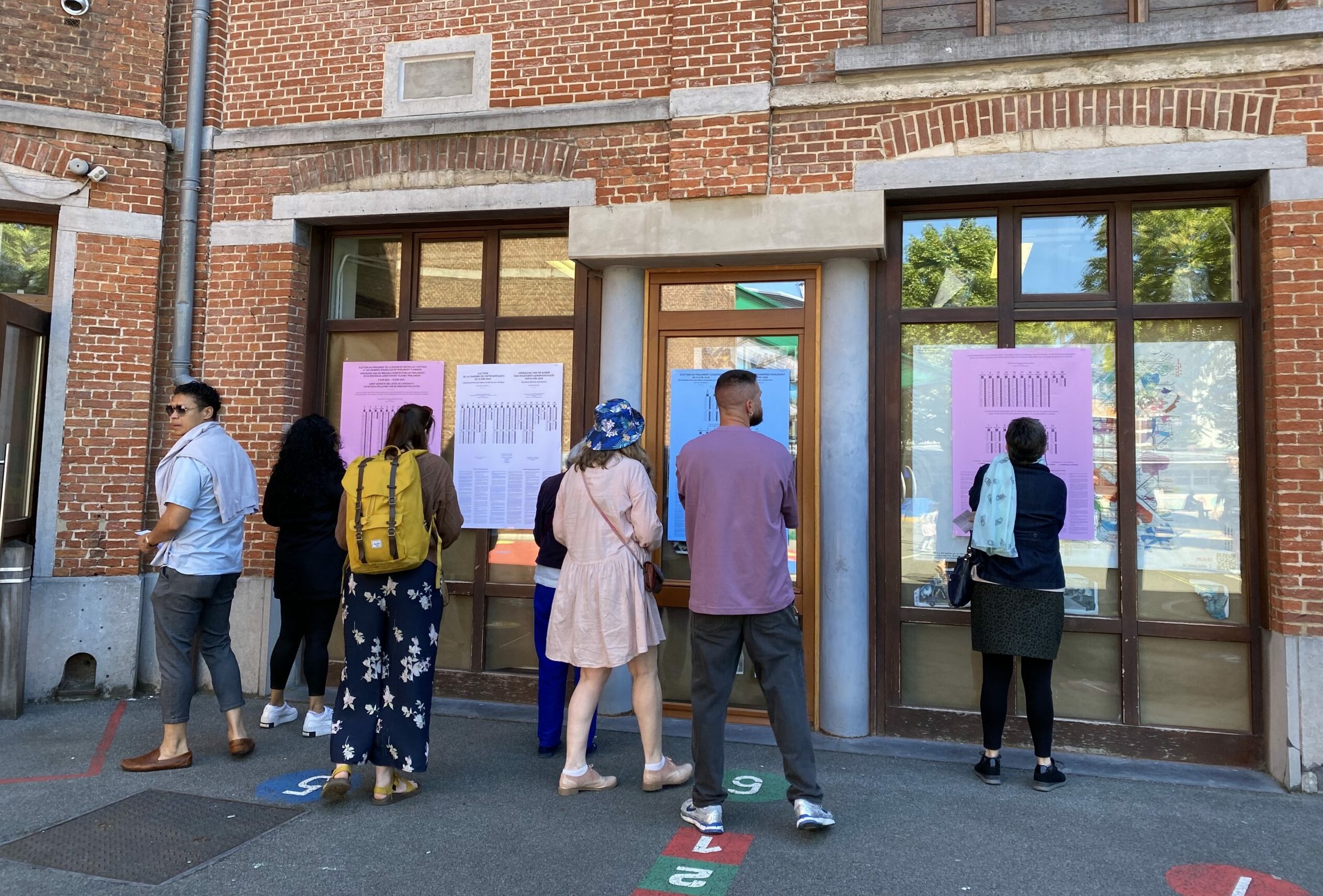Sunday’s grandstand elections saw a major resurgence for the right, with MR the big winner in Brussels and Wallonia and N-VA in Flanders. While the next Federal Government in Belgium is expected to be more right-wing, voting in Brussels reserved some more shocks and surprises.
On Sunday, Belgians elected new federal, regional and European representatives, with EU citizens in Belgium also being able to vote in the European elections.
While the polls were correct in indicating a more right-wing Flanders, Brussels and Wallonia also saw a marked tectonic shift to the centre-right with MR emerging as the biggest party in French-speaking Belgium. In Flanders, the left quietly made gains as the Vlaams Belang "landslide" never materialised – despite its record score.
In the regional and European elections in Brussels, the results per municipality paint a picture of new emerging political dynamics in both Francophone and Dutch-speaking Belgian politics.
As indicated by polls, the big overall winners in the regional elections in Brussels were French-speaking centre-right Mouvement Reformateur (MR), winning 20 seats (+7) in the Brussels Parliament. In second are the Socialist Party (PS) with 16 seats (–1), followed by radical left PTB with 15 (+5).
On Monday, PS leader Paul Magnette announced that his party would go into opposition (at all levels) after a disappointing night at the polls. This will make the likelihood of a more right-wing leaning government more likely.
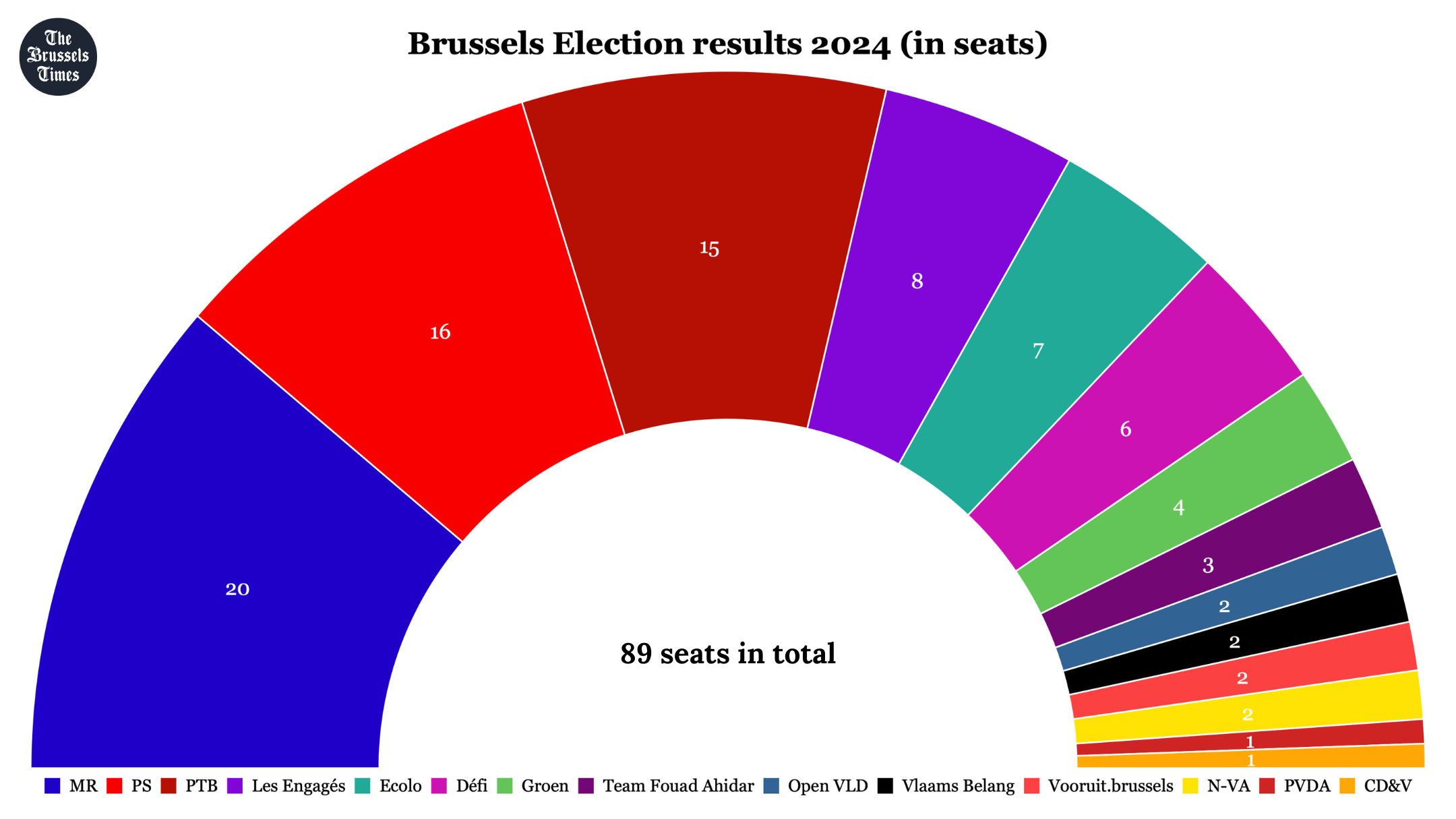
Data: Home Affairs Ministry. Credit: The Brussels Times
The biggest losers of the day were French-speaking greens Ecolo, who got only 7 seats (-8). They were also overtaken by Les Engagés, who retained their 8 seats and came fourth. DéFi will send 6 MPs (-4) to the regional parliament.
On the Dutch-speaking side, Groen's fortunes in the capital deeply contrasted with the results of their French-speaking sister party. The Flemish greens were the biggest winners in the Dutch-speaking college of the Belgian capital and will have 4 Brussels MPs in the regional parliament – opening the door for the return of Elke Van den Brandt as Brussels Mobility Minister.
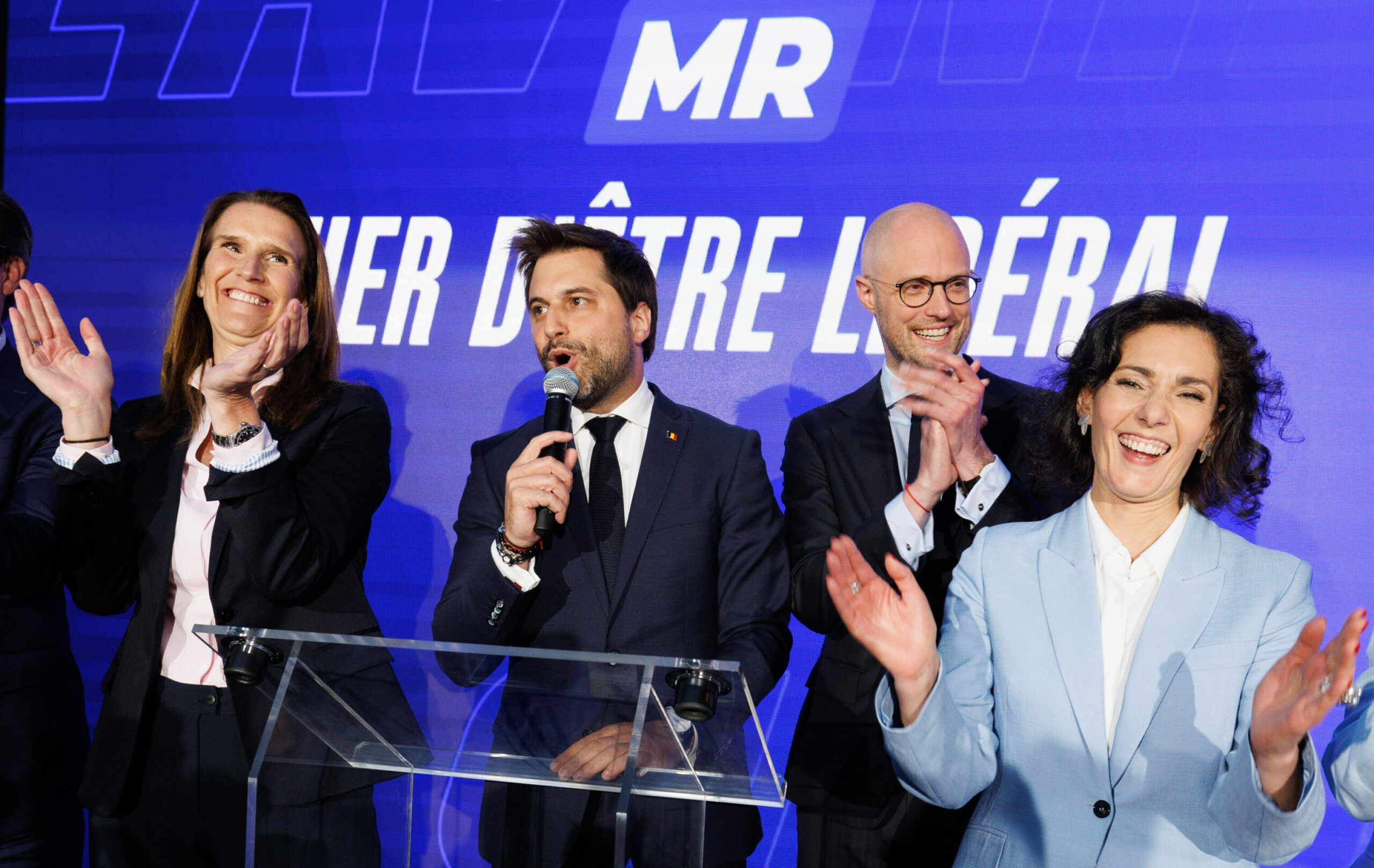
MR's Sophie Wilmes, leader Georges-Louis Bouchez, David Leisterh and Hadja Lahbib pictured during the party's post-election meeting. Credit: Belga / Benoit Doppagne
Another success story was Team Fouad Ahidar, who got an incredible 3 MPs after winning 13,242 votes as an independent after leaving Vooruit in December 2023 over differences with the party, including on migration.
Vooruit Brussels has also won 2 seats, opening the door for the return of Ans Persoons and Pascal Smet. Vlaams Belang, Open VLD and N-VA also got 2 seats – while PVDA (Dutch-speaking wing of the Belgian Workers Party) got 1 MP in the Brussels Regional Parliament.
Votes per municipality
So, how did every Brussels commune vote for the regional elections? In Brussels, voting was divided into constituencies or cantons: Anderlecht, Brussels, Ixelles, Molenbeek, Saint-Gilles, Saint-Josse and Uccle.
The Brussels Parliament elects 89 members, divided into two language groups: 72 belong to the French-speaking group and 17 members belong to the Dutch-speaking group.
Regional competencies include urban development, housing, public works, transport, economic policy, foreign trade, employment, environmental protection, energy, local authorities, scientific research and international relations.
Brussels voters were able to select either a French-speaking list or Dutch-speaking list. As the French-speaking college is much larger, this is reflected in the number of seats.
In Anderlecht, the Belgian Worker’s Party (PTB) emerged as the most popular party with 13,045 votes, ahead of PS (12,307) and MR (10,586). Compared to their 2019 results, PTB has overtaken both parties as the largest.
The biggest upset came with Team Fouad Ahidar, an independent who quit Vooruit in December, who won the most votes in the Anderlecht Dutch-speaking electoral college with 2,644 votes ahead of Groen in second. Ahidar has campaigned on issues such as ritual slaughter and the veil debate, and on Sunday evening said that he hopes to join the Brussels Government as the "Secretary of State or Minister of Housing".
Radical left PTB also emerged as the largest party in the smallest electoral constituency in Brussels – Saint-Gilles, winning 3,312 votes. PS were second (3,223 votes) and Ecolo third (2,086 votes). Ecolo had been the largest party in this constituency in 2019. Groen were comfortable winners on the Dutch-speaking list (989 votes), followed by Vooruit and Team Fouad Ahidar.
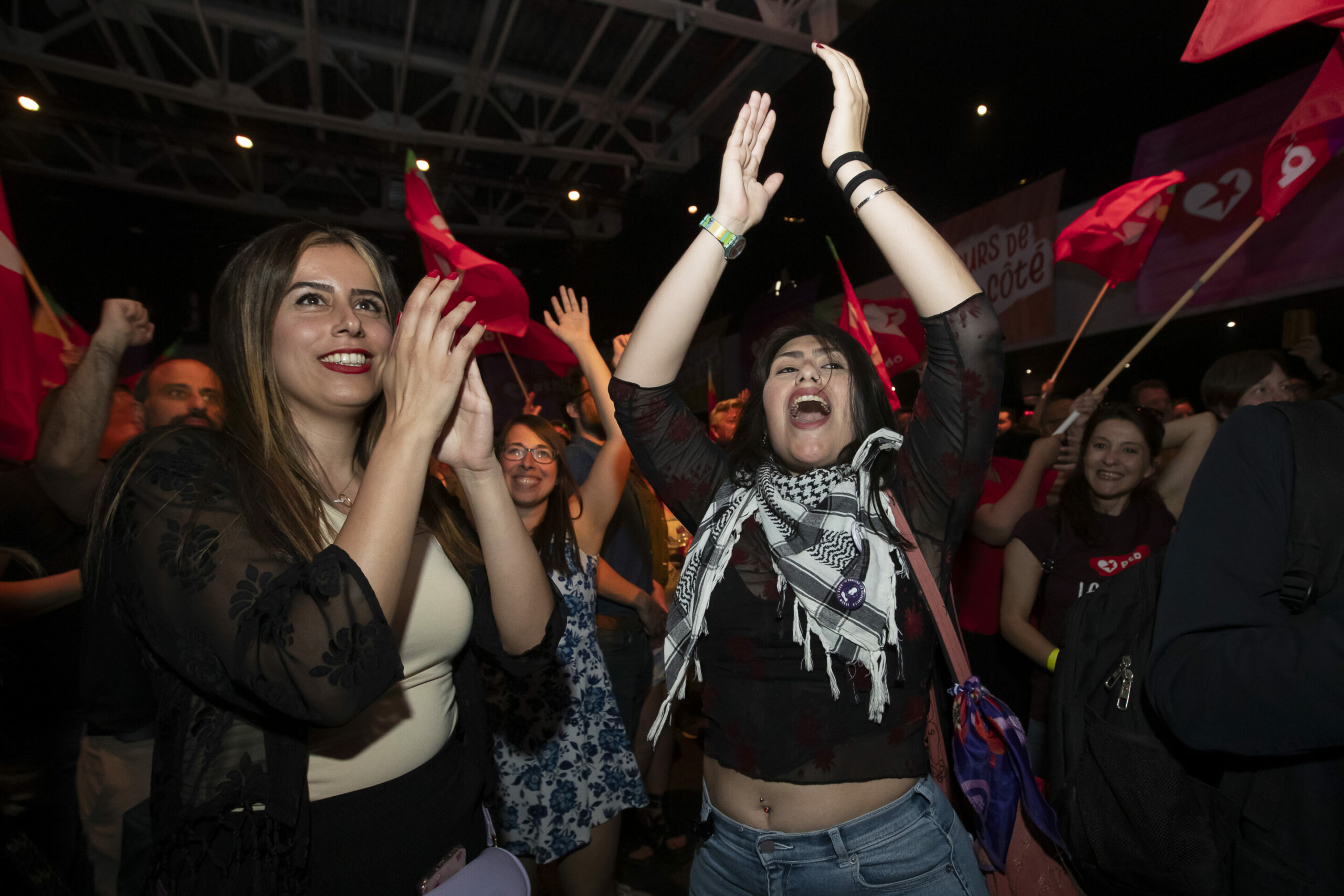
Supporters of PVDA-PTB cheer at the post-election meeting of Belgian radical left party PVDA-PTB, in Brussels, Sunday 09 June 2024. Credit: Belga / Kristof van Accom
In Ixelles, MR were the comfortable winner in this more affluent commune winning 15,238 votes, well ahead of the 7,932 votes of Ecolo (second) and the 7,684 votes of PS (third). PTB here picked up 6,892 votes, just missing out on the podium.
Another MR stronghold after Sunday’s election results is Uccle, one of the wealthier parts of Brussels. Here too, MR dominated, becoming the clear winners with 18,215 votes. This was nearly 10,000 more votes ahead of second-place PS (8,415 votes), while PTB nearly doubled their 2019 vote share but came in third (7,684 votes).
Ecolo sank from around 11,000 in 2019, to 6,697 on Sunday’s 2024 regional elections. Their Flemish counterparts Groen won the Dutch-speaking vote with 2,016, while N-VA came in second.
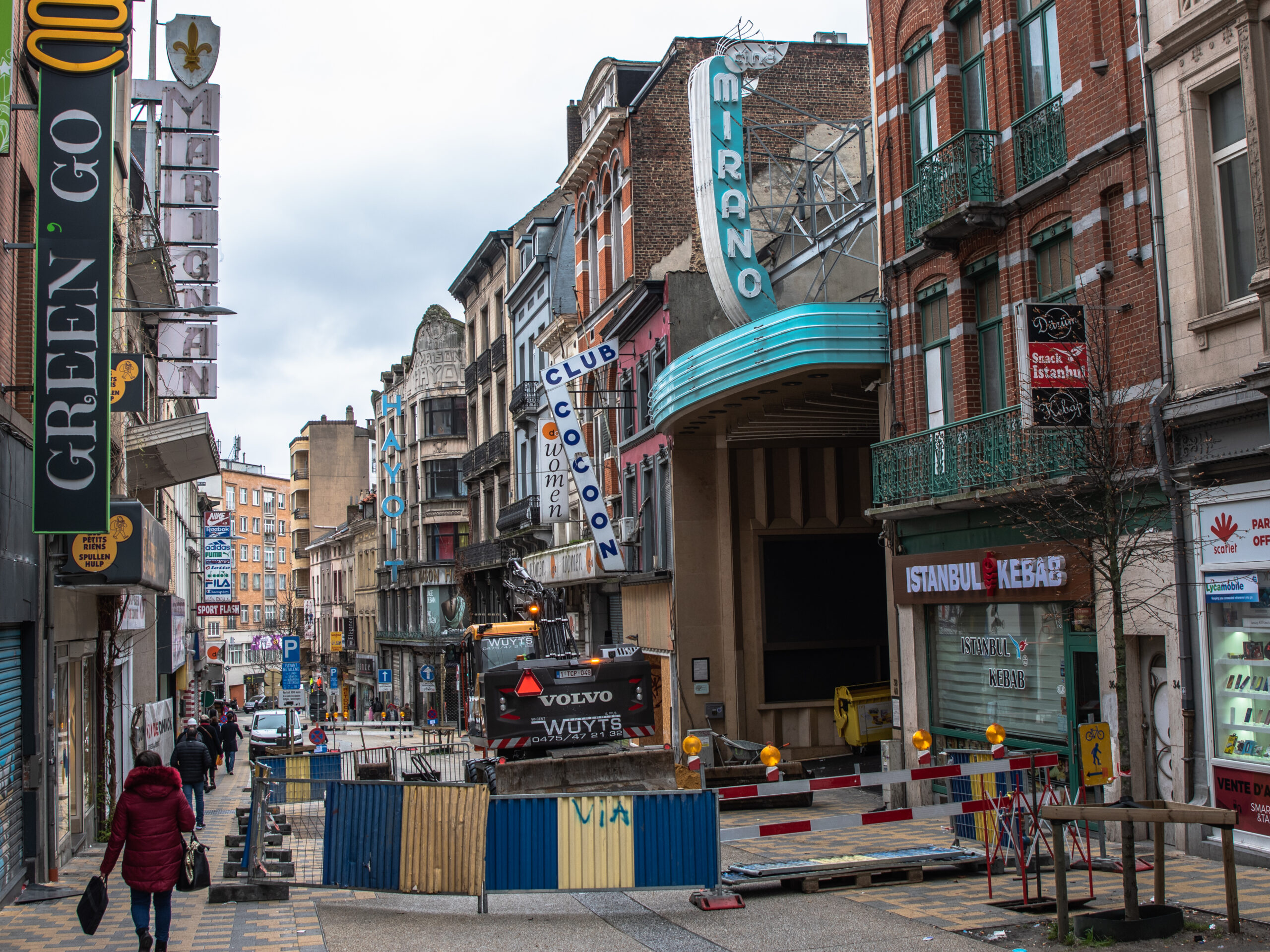
Saint-Josse-ten-Node. Credit: Belga / Loan Silvestre
From the richest to the poorest municipality in Belgium, MR also extended its lead from the previous elections in Saint-Josse-ten-Noode, winning 19,722 votes. The competition here was small, with PS coming second (8,912 votes) and Les Engagés improving their 2019 results and coming in third (8,912 votes). Ecolo here went from second in 2019 to fourth, picking up 6,352 votes. Groen was the largest Dutch-speaking with 2,234 votes.
The Socialist Party had a tough night, forfeiting their crown as the largest party in French-speaking Belgium to MR. In Brussels too, they lost support to both PTB and MR. However, the party's core base has held – winning some of the larger communes bar Anderlecht.
In the Brussels city centre constituency, the PS edged PTB by just over one thousand votes (PS gained 14,459 votes, while PTB got 13,866). Ecolo lost badly here too, losing over half of its vote share and coming fifth behind Les Engagés.
Groen won a high share here too with 3,426 votes, the most in the Dutch-speaking college. The two Flemish nationalist parties had mixed nights, with Vlaams Belang improving their score (1,338 votes), while N-VA got a worse score in the Belgian capital compared to 2019, coming behind Team Fouad Ahidar and Vooruit.
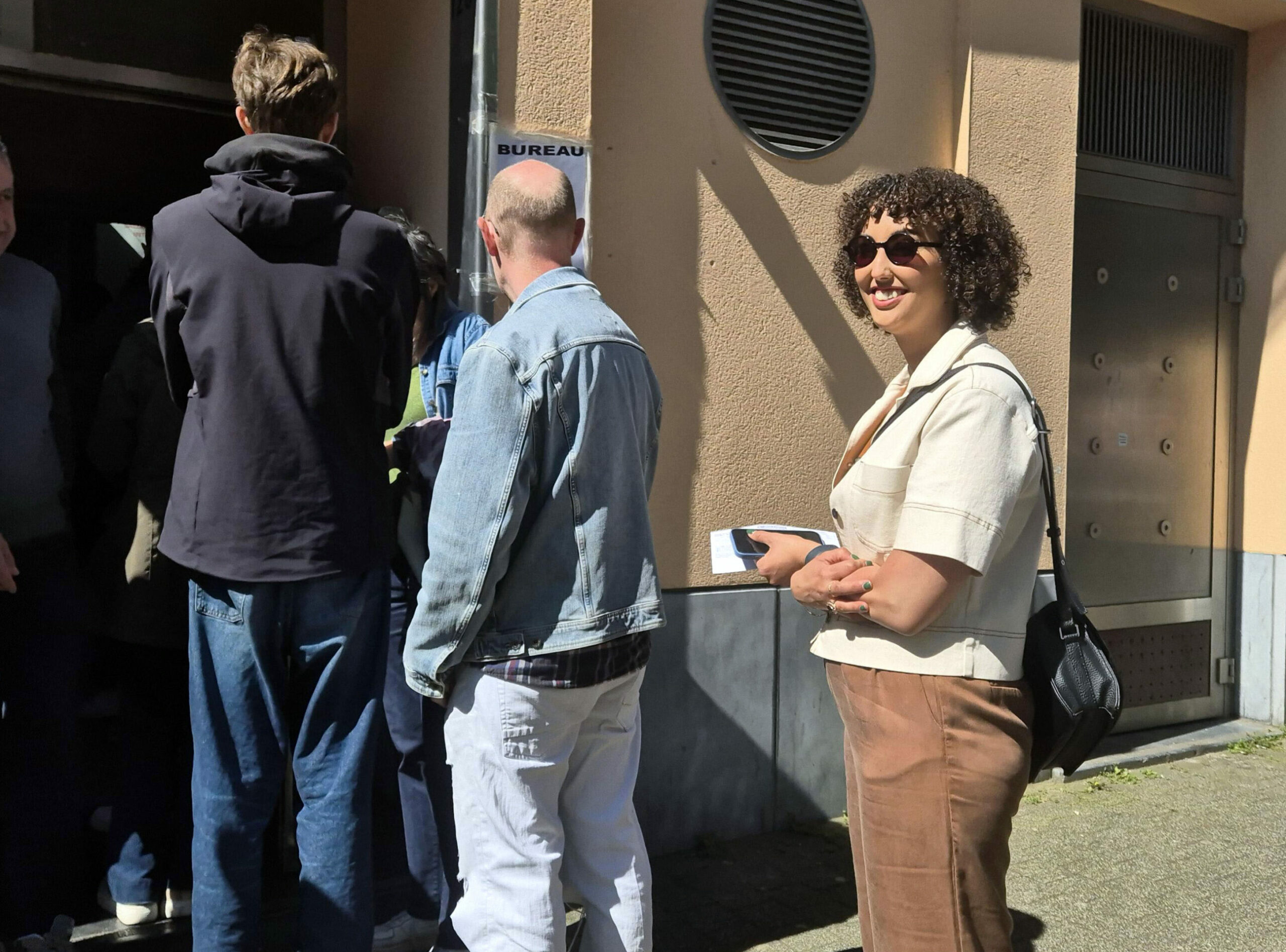
Groen co-leader Nadia Naji pictured at a polling station in Molenbeek-Saint-Jean, Brussels, Sunday 09 June 2024. Credit: Belga / Timon Ramboer
Molenbeek also came within a whisker of swinging from PS to PTB. There were just over 800 votes dividing the two parties in the regional elections, with PS coming out on top with 17,833 votes. MR were behind in third place with 13,088. On the Dutch-speaking side, Groen again triumphed with 3,051 votes – co-leader Nadia Naji was spotted voting there. With a sizeable and historically Flemish community, Vlaams Belang came in second on the Dutch-speaking list with 1,910 votes, and N-VA third with 1,719, higher than in other Brussels municipalities.
Schaerbeek had a similar pattern. The PS won 13,884 votes, ahead of PTB (12,114) and MR (11,029). Groen (2,866 votes) topped off a very successful Brussels election on the Dutch-speaking list, having won all the Dutch-speaking lists bar one. N-VA went down (1,128 compared to 1,554), while Vlaams Belang improved their result, winning just over one thousand.
How did people vote in the European elections in Brussels? Overall, the shares were spoiled by the Belgian Workers Party (PTB-PVDA) which won the most votes in Anderlecht, Molenbeek-Saint-Jean, Saint-Gilles and Schaerbeek, and MR, who won in Ixelles, Uccle, Saint-Josse-ten-Noode and Brussels.
For full results from the 2024 Belgian elections, click here.

